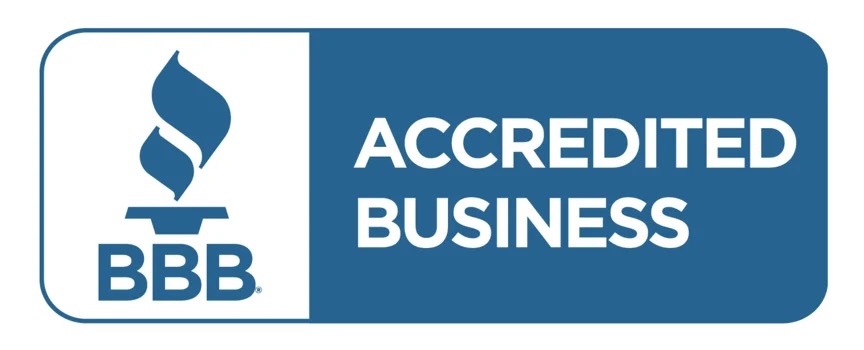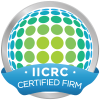Denver, Colorado, is renowned for its dry climate, with average humidity levels far lower than in many other parts of the United States. This arid environment may lead residents to believe they are immune to problems like mold growth, typically associated with high humidity. However, mold can thrive in various conditions if the right combination of factors is present. Understanding the relationship between indoor humidity and mold growth is essential for Denver residents to maintain a healthy and mold-free home environment.
Understanding Humidity and Mold
Humidity refers to the amount of moisture present in the air. Relative humidity (RH) is the most common measurement, indicating the percentage of moisture in the air relative to the maximum amount the air can hold at a given temperature. Mold growth becomes a concern when indoor relative humidity exceeds 60%. While Denver’s overall climate is dry, indoor conditions can differ dramatically due to activities like cooking, showering, and even houseplants, which release moisture into the air.
Mold spores, which are microscopic and omnipresent, require three primary conditions to grow:
- Moisture: Mold needs water or high humidity to grow.
- Food Source: Organic materials such as wood, drywall, and fabrics serve as food for mold.
- Temperature: Most mold species thrive between 60°F and 80°F, which aligns with typical indoor conditions.
Even in Denver, where outdoor humidity often drops below 20%, indoor environments can easily reach mold-friendly conditions if moisture is not managed effectively.
Sources of Indoor Humidity in Denver
- Daily Activities
Everyday actions like showering, cooking, and washing clothes release moisture into the air. For example, boiling water or steaming food can increase indoor humidity in a confined space. Without proper ventilation, these small activities can create localized humidity spikes. - Sealing for Energy Efficiency
Denver homeowners often seal their homes to conserve energy during cold winters and hot summers. While this reduces energy costs, it can trap humidity inside, leading to condensation and potential mold growth. - Winter Humidification
The dry winter air in Denver often prompts residents to use humidifiers to maintain comfort and prevent issues like dry skin or respiratory discomfort. However, overusing humidifiers can result in excessively high indoor humidity, inadvertently encouraging mold growth. - Plumbing Leaks
Undetected plumbing leaks can create pockets of moisture, providing a perfect breeding ground for mold. In Denver’s dry climate, such leaks may be overlooked because they don’t immediately appear problematic. - Basements and Crawl Spaces
Basements, a common feature in Denver homes, are prone to higher humidity levels due to poor ventilation and potential groundwater seepage. These spaces are particularly vulnerable to mold infestations.
How Humidity Affects Mold Growth in Denver
Despite Denver’s dry climate, indoor humidity levels can fluctuate based on seasonal changes and human activity. During the summer, swamp coolers or evaporative cooling systems, which are popular in Denver, introduce moisture into the air to cool homes. Without proper monitoring, these systems can increase indoor humidity to levels conducive to mold growth.
Conversely, during the winter, condensation can form on cold surfaces such as windows or poorly insulated walls, particularly when indoor air is humid. This condensation creates microenvironments where mold can develop, even if the overall relative humidity in the home is low.
Preventing Mold Growth in Denver Homes
To prevent mold growth, Denver homeowners must actively manage indoor humidity and address potential sources of moisture. Below are some strategies to reduce mold risk:
- Monitor Humidity Levels
Investing in a hygrometer to measure indoor humidity is a simple and cost-effective way to monitor conditions. Keeping indoor humidity between 30% and 50% is ideal for preventing mold growth while maintaining comfort. - Improve Ventilation
Ensure proper ventilation in moisture-prone areas such as bathrooms, kitchens, and laundry rooms. Exhaust fans can effectively reduce localized humidity and help maintain a balanced indoor environment. - Repair Leaks and Insulate
Promptly repair any plumbing leaks or roof damage that could introduce moisture into the home. Additionally, insulate walls and windows to prevent condensation, especially during Denver’s cold winters. - Use Dehumidifiers
For homes with naturally higher humidity levels or basements prone to dampness, a dehumidifier can help maintain appropriate moisture levels. Modern units are energy-efficient and include automatic settings to maintain desired humidity ranges. - Limit Humidifier Use
During winter, use humidifiers cautiously. Set devices to maintain a humidity level below 50%, and monitor rooms where they are used for signs of condensation or excess moisture. - Manage Indoor Plants
While indoor plants add beauty and improve air quality, they can also increase humidity. Opt for fewer plants or place them in well-ventilated areas to minimize their impact on indoor moisture levels. - Regular Cleaning and Inspection
Mold thrives on dirt and dust, so keeping surfaces clean can reduce its ability to grow. Inspect hidden areas such as behind appliances or under sinks, as these spots often harbor unnoticed mold.
Signs of Mold and Its Health Impacts
Mold often begins as small black, green, or white spots and can emit a musty odor. It commonly appears on walls, ceilings, or in corners with poor air circulation.
Exposure to mold can cause various health problems, especially for individuals with allergies, asthma, or compromised immune systems. Symptoms include:
- Nasal congestion
- Respiratory irritation
- Skin rashes
- Eye irritation
- Worsened asthma attacks
If mold is detected, it is crucial to address the source of moisture and clean or remove the affected materials to prevent recurrence.
Denver-Specific Challenges
While Denver’s dry climate may reduce the likelihood of widespread mold issues, the combination of cold winters, energy-efficient homes, and modern humidification practices creates unique challenges. Additionally, the rapid temperature changes common in Denver can cause condensation in poorly insulated homes, further increasing mold risks.
Homeowners in Denver must remain vigilant, as the interplay between external dryness and internal moisture sources creates opportunities for mold growth in unexpected areas.
While Denver’s arid environment provides a natural defense against mold, it does not eliminate the risk entirely. Indoor humidity levels, influenced by daily activities, energy-efficient sealing, and humidification practices, can create favorable conditions for mold growth. By monitoring and controlling humidity, repairing leaks, improving ventilation, and addressing potential moisture sources, Denver homeowners can prevent mold-related problems. A proactive approach to humidity management is essential for maintaining a healthy living environment, even in a dry city like Denver.
By understanding the relationship between humidity and mold, Denver residents can better protect their homes and health, ensuring that the Mile High City’s dry climate doesn’t lead to unexpected indoor challenges.




